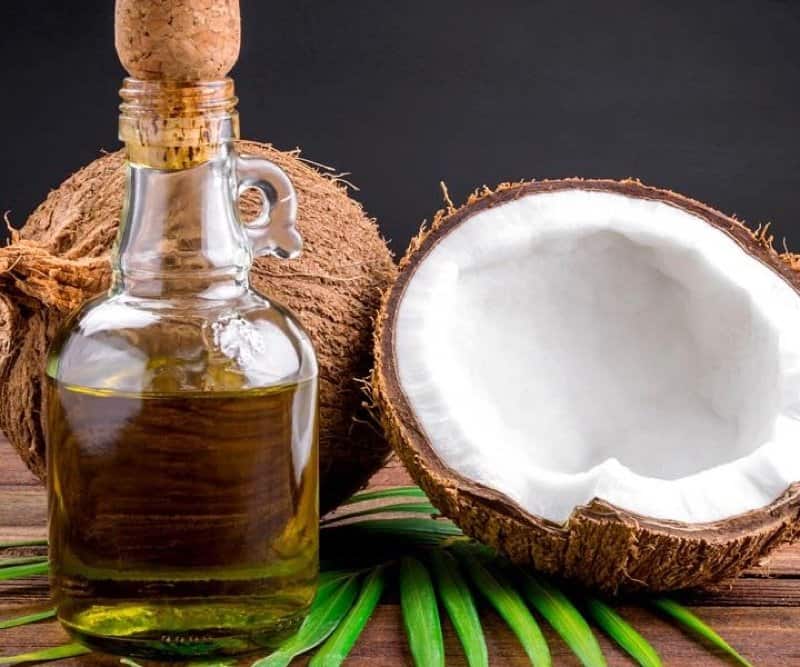Coconut oil has long been praised for its numerous benefits, from hair care to skincare and overall health. Recently, it has garnered attention for its potential use in tanning. As we observe the dark and healthy skin of people living on islands where coconuts thrive, it’s easy to wonder if the secret lies in their use of coconut oil.
In this article, we will examine the pros and cons of using coconut oil for tanning, as well as explore other advantages offered by this versatile natural ingredient.
Chapter Overview
Why Use Coconut Oil For Tanning
Nourishes Your Skin
Using coconut oil for tanning means that you’re not only getting a tan, but also nourishing your skin at the same time. Coconut oil is rich in natural fatty acids, which help keep your skin moisturized and hydrated. This is unlike regular sunscreens, which often lack natural ingredients that can benefit your skin.
Absorb More Vitamin D
We need vitamin D for various health reasons, and our body produces it when exposed to sunlight. Coconut oil actually aids in this process by allowing your skin to absorb more vitamin D, which is essential for disease protection, bone growth, and mental well-being. Sunscreens, on the other hand, may contain harmful chemicals that can block the skin’s ability to absorb vitamin D.
Give You Shiny Look
Regular exposure to the sun can take a toll on your skin, causing it to become darker and duller. Coconut oil, however, helps maintain a strong, shiny look even as you tan. It basically allows you to tan while preserving the healthy appearance of your skin.
Reflect UV Rays
When you apply coconut oil, it forms a layer on your skin that helps reflect some of the UV rays off. This means that you can tan while also minimizing sun damage.
Protects You From Infections
Spending long hours in the sun can make your skin more susceptible to germs and infection. Coconut oil helps provide protection against infection, thanks to its antimicrobial and anti-fungal properties. You can enjoy your tan while also keeping your skin healthy and protected.
Speeds Up The Tanning Process
Your skin absorbs coconut oil quickly, meaning it takes less time to tan. Once absorbed, the oil energizes your skin and the melanin-producing layer beneath, helping you achieve that desired color more quickly.
Soothes Irritation
If your skin is irritated, inflamed, or reddened from sun exposure, coconut oil can help soothe and calm it. It’s hydrating properties also make it great for treating and preventing sunburn, and for maintaining a smooth, healthy glow.
Coconut Oil Has a Long Shelf Life
Unlike sunscreens, which typically have a shelf life of only one year, organic coconut oil can last up to 36 months if stored properly. This means you can use it for multiple tanning seasons without having to worry about buying a new bottle every year.
Why You Shouldn’t Use Coconut Oil For Tanning?
While coconut oil may have a myriad of health benefits for your skin, it falls short in providing adequate sun protection. We’ll briefly discuss the reasons why coconut oil isn’t a reliable tanning agent.
- Low SPF: According to a study, coconut oil has limited UV-blocking capabilities compared to commercial sunscreens. This low SPF factor is insufficient to protect your skin from harmful UV rays.
- Skin damage risks: The low SPF factor in coconut oil leaves your skin vulnerable to harmful effects of UVA and UVB rays, potentially causing sunburns, premature aging, hyperpigmentation, and even melanoma.
- Acne and breakouts: Coconut oil is comedogenic, meaning it can clog pores and may cause allergic reactions in acne-prone skin.
- Ineffective compared to alternatives: Commercial sunscreens and sun blockers offer significantly higher UV protection compared to coconut oil, reducing the risks of sun damage and skin cancer.
To ensure proper sun protection, we recommend using a broad-spectrum sunscreen with an SPF of 30 or higher, wearing protective clothing, and limiting exposure to tanning beds. It’s crucial to prioritize skin safety over achieving a tan, avoiding the use of less-effective natural oils like coconut oil for sun protection.
How to Apply Coconut Oil for Tanning?
To achieve a natural tan using coconut oil, follow these steps:
- Choose the right coconut oil: Opt for virgin and organic coconut oil for the best results, as refined and perfumed variations do not contain the same health benefits.
- Massage the oil: Take some coconut oil and massage it all over your body, ensuring it soaks into your skin completely.
- Protect sensitive skin: Consider using protective clothing like a hat or umbrella when going out, especially if you have sensitive skin.
- Reapply regularly: Reapply the oil on your skin every 30 minutes when exposed to the sun.
- Layer sunscreen for added protection: Since coconut oil does not have a high SPF, applying a layer of waterproof sunscreen on top of the coconut oil is recommended for prolonged sun exposure.
Following these steps will help you make the most out of coconut oil as a natural tanning oil while ensuring your skin remains protected.

